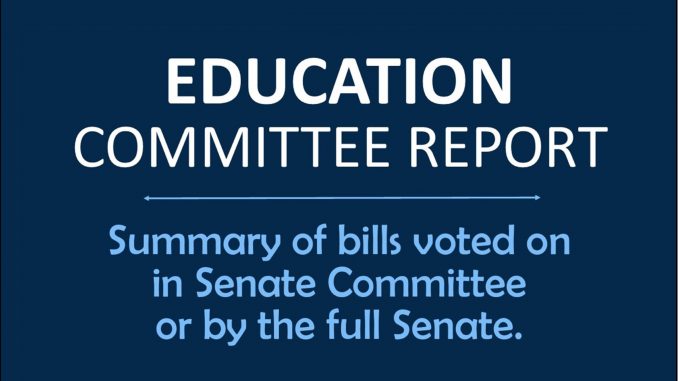
SSB 3029 – Department of Education technical clean-up bill
SF 2004 – Suicide awareness professional development for educators
COMMITTEE ACTION
SSB 3029 is the Iowa Department of Education’s technical clean-up bill. It makes non-controversial changes to Iowa Code relating to practitioner preparation programs, eliminates obsolete language relating to the federal No Child Left Behind (NCLB) Act and repeals the before and after school grant program that hasn’t been funded in 10 years. Highlights include:
- A Committee Amendment was adopted to eliminate work-based learning technical fixes, which were made in a bill (HF 648) that passed the House in 2017 on a vote of 98-0.
- Changing Iowa Code locations on the Department of Education’s approval process for practitioner preparation programs. Currently, approval of practitioner preparation programs is located in Code chapters 256 (Department of Education) and 272 (Educational Examiners Board). The bill moves the language in Code chapter 272 to Code section 256.16 (specific criteria for teacher preparation and certain educators) and removes resulting redundancies.
- Striking unnecessary district level reporting requirements for the federal NCLB, which has been replaced with the Every Student Succeed Act (ESSA).
- Repealing the Before & After School Grant program, which was established to provide competitive grants to expand before and after school programs and summer schools. The program has not received state funding since 2008.
[1/24: 15-0]
SF 2004 has the Board of Educational Examiners (BOEE) adopt administrative rules that require all licensed educators to have one hour of training on suicide awareness and prevention every year. The bill permits a person to meet the requirement through independent self-review of training materials approved by the board. A committee amendment was adopted that changed the timeframe requirements for this training from once a year to upon renew of a teaching/administrative license, which is every five years.
[1/24: 15-0]
